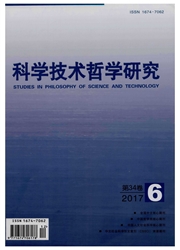

 中文摘要:
中文摘要:
近年来,实验哲学以其方法论上的变革意蕴掀起了一场新兴的哲学运动。实验哲学家不再坐在“扶手椅”上玄思冥想,而是走出书斋,实施实验,再进行深入的哲学探讨。然而,实验哲学却存在着深层次的逻辑困境:批判传统哲学中直觉可靠性的同时又以此易变、多样的哲学直觉为判据基础;在运用认知神经科学等方法之时,又遭遇方法论自然化的“难问题”与“解释鸿沟”。开展对实验哲学的必要性反思,将有助于推进这一哲学运动的进一步发展。
 英文摘要:
英文摘要:
In recent years, the experimental philosophy has set off a new philosophical movement in methodology. Experimental philosophers no longer sit on the "armchair" to do meditation, rather, they carry out experiments, and then make philosophical discussions deeply. However, there is a logical dilemma deep in the experimental phi- losophy: Experimental philosophers criticize the reliability of intuition while they use it as evidence. When using the methods of cognitive neuroscience, experimental philosophers have to face "hard problems" and "explanation gaps" in methodological naturalism. It is a necessary for us to reflect on the experimental philosophy, which will promote further development of this philosophical movement.
 同期刊论文项目
同期刊论文项目
 同项目期刊论文
同项目期刊论文
 期刊信息
期刊信息
